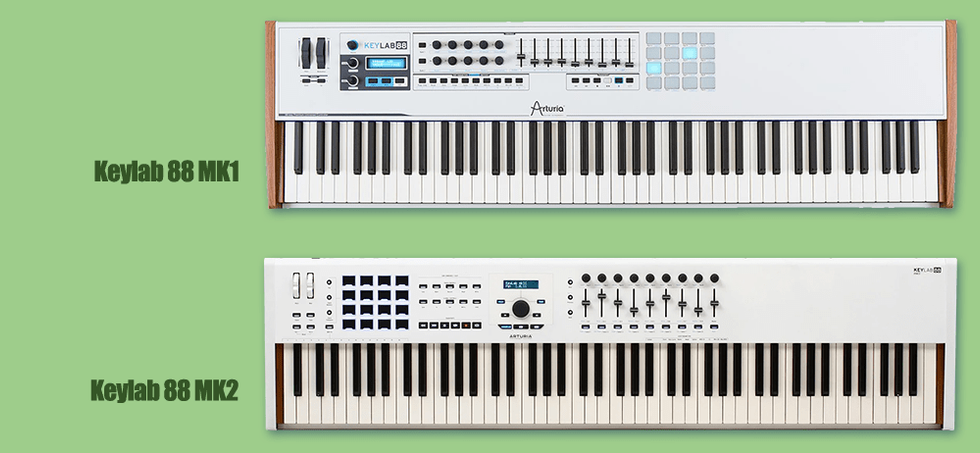MK2 and MK3 Overload: Same Gear, New Number
- Aug 16, 2024
- 2 min read
If It Ain’t Broke… Just Make an MK2
In the world of music gear, the trend of releasing MK2, MK3, and even further iterations of popular products has become almost standard practice. Companies like Arturia, Native Instruments, and Elektron have all embraced this approach, offering new versions of their well-known products with subtle but notable improvements. While these updates can often bring better build quality, enhanced firmware, or additional presets, it’s hard not to wonder if this practice signals a lack of fresh ideas. From a consumer’s point of view, seeing the same products re-released with minimal changes can feel like a missed opportunity for true innovation.

The Good, the Bad, and the Just Slightly Better
However, when we take a closer look, it becomes clear that there’s more to this strategy than meets the eye. For companies, continuous versioning can be a way to maintain brand consistency and cater to loyal customers who trust the product but are seeking enhancements. Releasing an MK2 or MK3 version allows these companies to refine what works, offering a more polished experience without the need to reinvent the wheel. From a business perspective, it makes sense—updating an existing product is often less risky and costly than developing something entirely new, especially in a competitive market where the margins for error are slim.
The Tightrope Between Innovation and Iteration
That said, the question remains: Are these incremental updates enough to keep the creative spark alive? For some consumers, the answer might be no. The desire for groundbreaking gear, something that feels truly new and exciting, is always there. Yet, it’s important to recognize that innovation doesn’t always mean starting from scratch. Sometimes, the best ideas come from refining and perfecting existing ones. While the release of yet another MK3 might not satisfy everyone’s craving for novelty, it could be paving the way for more significant advancements down the line, funded by the success of these iterative products.

Fun Fact
One of the earliest and most notable instances in the music gear world is the Roland TR-909 MK2 drum machine, which was a reissue of the original TR-909. However, this wasn’t widely marketed as "MK2" during its time but has since been referred to as such by enthusiasts and collectors to differentiate between the original and later versions based on its sound and internal components. Another early and iconic example is the Technics SL-1200 MK2 turntable, released in 1979. The MK2 version of the SL-1200 became a staple for DJs and is often cited as a significant upgrade over the original SL-1200, making it one of the most influential "MK2" pieces of music gear.

In the end, the balance between innovation and refinement is delicate. While it’s easy to criticize companies for playing it safe with continuous versioning, the reality is that these updates often serve a purpose, ensuring that reliable products evolve to meet changing needs. Perhaps the key lies in understanding that MK2 and MK3 versions are not the end of the road, but rather, steps along the path to future innovations.
What’s your take on the MK2 and MK3 trend? Do you see value in these updates, or are you craving something truly new from music gear companies?
Let’s discuss in the comments!















Comments